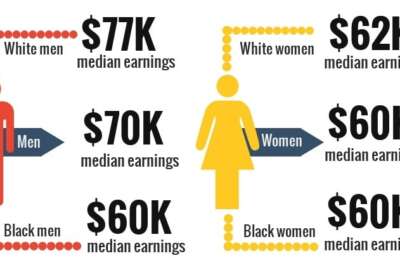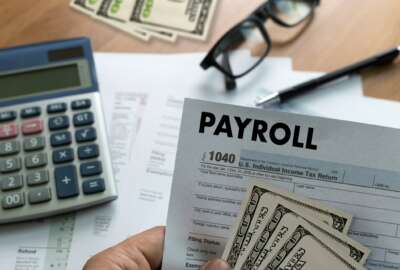

Among the permanent damage of the shutdown, according to CBO: $3 billion in lost economic activity, $2 billion in tax revenue.
A new analysis the Congressional Budget Office released on Monday provided an initial accounting of how damaging and wasteful the longest shutdown in history was to the federal government, its employees and the broader economy.
According to CBO, the back wages that employees who had been furloughed will finally receive this week total roughly $3 billion, a figure that amounts essentially to lost productivity. In the broader economy, it cost another $3 billion in economic activity that won’t be recovered. And all by themselves, the tax enforcement activities the IRS had to forego during the shutdown translate to $2 billion in federal revenue that’s never coming back.
CBO cautioned that the numbers in its analysis were only estimates, since it’s impossible to calculate exactly how much federal spending the shutdown either prevented or delayed. But it believes total federal outlays during the five-week shutdown were about $18 billion less than they would have otherwise been. Of that total:
In terms of effects to the nation’s GDP, the office believes that the shutdown cost the economy $3 billion in the fourth quarter of 2018 and $8 billion in the first quarter of 2019.
Some — but not all — of those losses will be offset when federal employees and contractors get their overdue pay and make purchases that they’d delayed during the shutdown, but CBO doesn’t expect those spending patterns to stabilize until the fourth quarter of 2019. In the end, roughly $3 billion in economic activity will have been foregone because of the shutdown, the office estimates.
The same is true of dollars taken in by the federal treasury. CBO says much of the fee and fine revenue government agencies didn’t collect during the shutdown will eventually be recouped when agency operations return to normal, but that the government won’t be able to make up for all of the lost revenue the shutdown caused.



But CBO warned that it’s analysis couldn’t account for many of the indirect effects the shutdown had on the economy and on federal agencies.
For instance, the office said there were likely a large number of companies who were forced to delay their applications for federal permits, subsidies and loans. Those effects, CBO said, would have started to become more and more obvious if the shutdown had lasted longer than it did.
And without attempting to put a price tag on it, CBO also acknowledged there were costs associated with the shutdown’s impact on Americans’ confidence in the federal government’s ability to continue operating reliably.
“Funding lapses were probably beginning to reduce the credibility of the federal government as an employer and a contracting party, making it more difficult for federal agencies to attract and maintain a talented workforce and more expensive to enter into contracts with private firms,” according to the report.
Although a self-inflicted $3 billion economic loss would be very small in the context of the U.S.’ roughly $20 trillion GDP, Larry Kudlow, the director of the White House’s National Economic Council, disputed CBO’s estimate.
The administration believes the shutdown will result in no measurable long-term economic damage, he told reporters Monday.
“The state of the economy looks very strong, and I don’t think that was disruptive. I don’t,” he said. “I know things have been written and there are individual hardship cases, but in the aggregate — low unemployment claims, unbelievably strong same-store retail sales, the industrial production number from the Federal Reserve where business equipment went up for the seventh straight month — just a scattered look at all those kinds of datapoints suggests to us that we’re still in a very strong mode right now.”
But CBO and the administration appear to agree on at least one thing: The shutdown’s economic consequences were heavily concentrated on federal employees and contractors.
“The hardships for individuals was always the key problem in my judgment,” Kudlow said. “I’m glad we’re back to work. All the federal employees furloughed, [the Transportation Security Administration], you can go right down the line, I think those individual hardships were the biggest issue. I think everybody’s glad we can reopen and put folks back to work. Regarding the macro economy, I don’t think it was a factor.”
Copyright © 2025 Federal News Network. All rights reserved. This website is not intended for users located within the European Economic Area.
Jared Serbu is deputy editor of Federal News Network and reports on the Defense Department’s contracting, legislative, workforce and IT issues.
Follow @jserbuWFED
